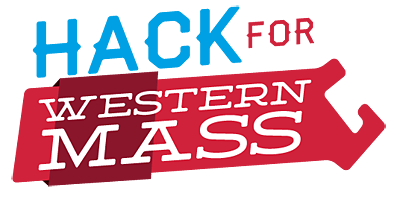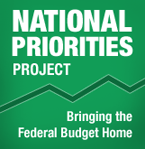Unlocking Prison Phone Data
Contributed by: Prison Policy Initiative, Easthampton, Mass.
General problem: A single telephone call home from prison can cost more you would pay for a months’ unlimited long distance. Why? Because the state Departments of Correction and the local jails give monopoly contracts to prison telephone companies in exchange for kicking back the lion’s share of the income. The families of the 1.4 million people in state or federal prison, and the families of the 12 million people who cycle through local jails each year are the ones who pay the price. The Federal Communications Commission (FCC) is finally considering providing relief to families by banning the kickbacks and regulating the industry, but the industry and the prison systems are fighting back, hard. (For more general information, see http://www.prisonpolicy.org/phones)
Specific problem: The FCC is collecting an unprecedented amount of paper – by criminal justice reform standards, anyway –in the form of public (and corporate) comments on prison phone regulation. This data is technically public, but the content is practically inaccessible to people who need it to advocate for reform. Criminal justice reform advocates are filing lengthy reports chock full of data and arguments for reform, and hundreds of incarcerated people are writing in – often longhand – with compelling personal stories about the family-splitting effects of the prison telephone industry. The prison phone companies are pushing back by filing long briefs and ghost-writing comments letters for county sheriffs and state prison systems, all objecting to FCC regulation. Outside of a handful of telecommunications lawyers and one journalist, almost nobody is trying to review, let alone mine, this data source.
What the solution might look like: Can we make this unprecedented amount of valuable data more easily accessible to the people who need it to achieve reform? For example, can we build a tool that does a word/phrase frequency analysis of the different filings? Some of the word differences are legal or stylistic, like the dispute over whether payments to the prisons are “kickbacks,” “commissions” or “location rents,” and some speak to different priorities. For example, how often do the prison companies use the word “family” in comparison with the filings by incarcerated people? And/or can we do a plagiarism style analysis on the filings of the county sheriffs and state prisons that shows that three of the prison phone companies ghost wrote the majority of these submissions to the FCC? And can we tie the true authorship of those documents to the company that holds the contract?
Target audiences: We need to empower the people who want to make effective change on this issue without requiring them to first become telecommunications lawyers. There is a lot of grassroots organizing around the country on this issue and a growing amount of media and policymaker interest, but the barrier to effectively engage with this filed material is too high. In particular, the policymakers and journalists want to engage this material, but they don’t have the time or experience to process the amount of data, let alone draw the connections that need to be made.
Data: The FCC has been collecting hundreds of public comments since December 2012 at http://apps.fcc.gov/ecfs/proceeding/view?name=12-375. Comments are arranged chronologically, and the letters from incarcerated people are often bundled together under the unhelpful label “various.” (There are also 4,144 older filings related to an earlier phase of the process, going back a decade at http://apps.fcc.gov/ecfs/proceeding/view?name=96-128. In this older dataset, the most still-relevant material is probably the prisoner letters which are continuing to come in to the old document number and are surely not being analyzed.) There is an FCC API documented at http://www.fcc.gov/developers/fcc-content-api but the format and volume of the content is pretty amenable to screen scraping. The larger challenge is that the data is in PDF format, some of it needs to be OCR’d, and some may need to be retyped; and there are also some duplicates and unnecessary attachments to address.
Timing: Hack for Western Mass is well timed for this project. The FCC issued a “Notice of Proposed Rulemaking” in December, setting off a 60-day comment period that closed in March, which was followed by a 30-day reply period that closed 2 weeks ago. The FCC now needs to decide what to do and the universe of documents is not currently in active flux, so this is a good time to do an analysis that will inform both the FCC’s deliberations and influence the next steps.
Presence: The Prison Policy Initiative can be available on June 1-2 to present the pitch and help with implementation. In particular, we’re imaging that our expertise will be helpful to classify the filings and to give feedback on the correlations that are found.















